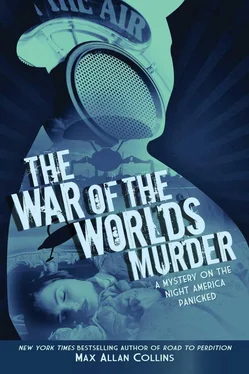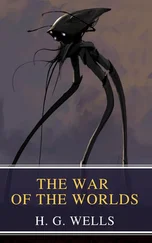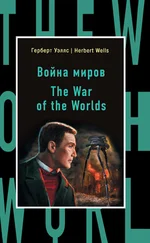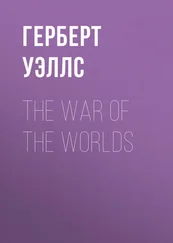The jowly, avuncular face split in a bittersweet grin. “That would’ve been fun. But it’s not like I don’t have anything to show for it all.”
“How so?”
With a magician’s grace and showmanship, he removed the impressive gold ring with the fire opal, the replica of the Shadow’s ring that he said he always wore.
“I received this in the mail,” Gibson said, “about a month after that memorable weekend. There was no note, but the return address was the St. Regis Hotel…. Look at the inscription.”
Inside the ring were the words: From Lamont Cranston .
“You know,” Gibson said, “I sent Orson a package once myself, keeping an old promise….”
Again Gibson stared into the past.
“During the Second World War,” he said, “Orson put up a tent on Cahuenga Boulevard in L.A., and he and his Mercury players put on The Mercury Wonder Show , strictly for servicemen, and for free-sawing Rita Hayworth and Marlene Dietrich in half, Agnes Moorehead playing the calliope, Joe Cotten playing stooge, lots of pretty starlets of the Dolores Donovan variety, as magician’s assistants. He took his magic show to a lot of army camps, too.”
I had no idea where this was going, but I remained as hypnotized by this great pulp storyteller as the victims of the Shadow.
“Hearing about this magic show prompted me to keep my promise,” Gibson said. “I sent him the works on my Hindu wand routine…the one Houdini liked, but didn’t live to use? And Orson put it in his act-the night he got it.”
That seemed as good a curtain line as any, and I picked up the check. Then we walked out into the lobby, chatting, and at the elevators went our separate ways.
I talked to Gibson once more, casually, at another Bouchercon a few years later in New York, where he performed his magic act for an enthusiastic audience of mystery writers and fans. In his last years, Gibson enjoyed these fun encounters with his public (he, too, became a Bouchercon Guest of Honor), thanks to the efforts of enthusiasts like Otto Penzler, Anthony Tollin and J. Randolph Cox. The man who was “Maxwell Grant” finally had a little of the large fame he deserved.
He was still active as a freelance writer-and practicing magician-right up to his death in 1996.
Welles left us in October of 1985, at an ancient and yet so very young seventy. He had become the quintessential maverick of moviemakers, seeking money and shooting movies in every corner of the globe, funding his films with acting jobs that were often beneath him and, most famously, as a TV commercial pitchman for wine and other products; despite the legend that, after Citizen Kane , he had no real career as a director, his body of work-not counting scores of acting appearances, and projects finished by others or as yet unreleased-includes thirteen films, most of which are wonderful, every one of which is of interest.
He, too, was active up to the day he died: in a manner that would have suited Gibson, the Shadow actor departed at a desk, working on a screenplay.
At his typewriter.

![Герберт Уэллс - The War of the Worlds [С англо-русским словарем]](/books/26611/gerbert-uells-the-war-of-the-worlds-s-anglo-thumb.webp)










